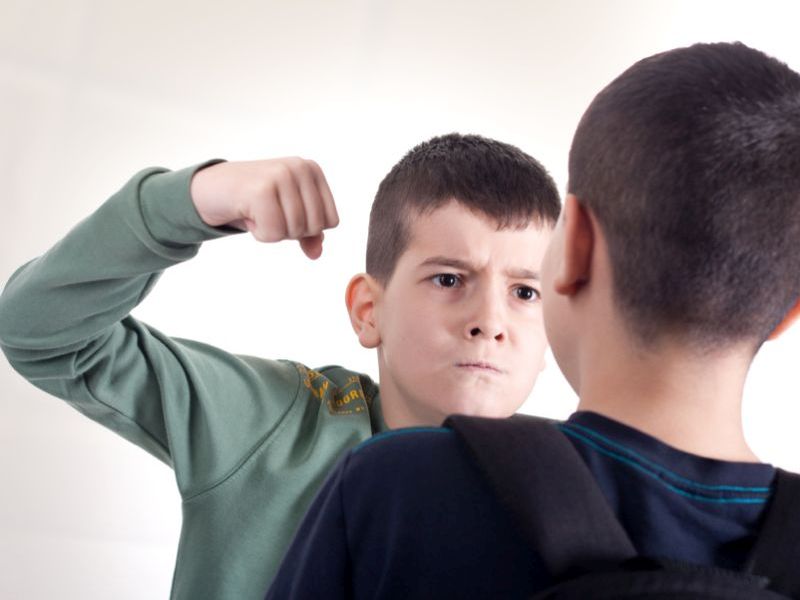FRIDAY, Feb. 16, 2018 (HealthDay News) — People who, as young kids, either bullied their siblings or were bullied themselves by siblings face an increased risk for psychotic disorders, a new British study suggests.
By age 18, those who’d been either the victim or the bully several times a week or month were two to three times more likely to have a psychotic disorder, such as schizophrenia or bipolar disorder, researchers from the University of Warwick found.
“If the bullying occurs at home and at school, the risk for psychotic disorder is even higher,” study first author Slava Dantchev said in a university news release. Their risk was four times higher, the researchers found.
“These adolescents have no safe place,” Dantchev said.
The study included nearly 3,600 youngsters who completed a questionnaire about sibling bullying at age 12 and were assessed for psychotic symptoms at age 18.
When they were 12 years of age, 664 kids said they were bullied by siblings, 486 said they bullied their siblings, and 771 were both victim and bully. By 18 years of age, 55 kids had developed a psychotic disorder, the study authors said.
The more often 18-year-olds had been involved in sibling bullying at a younger age — either as bully, victim or both — the more likely they were to have a psychotic disorder, the findings showed.
However, Dantchev noted that although the researchers took into account “for many pre-existing mental health and social factors, it cannot be excluded that the social relationship problems may be early signs of developing serious mental health problems rather than their cause.”
According to senior study author Dieter Wolke, “Bullying by siblings has been, until recently, widely ignored as a trauma that may lead to serious mental health problems, such as psychotic disorder.”
Wolke, a psychology professor at the university, added that “children spend substantial time with their siblings in the confinement of their family home and, if bullied and excluded, this can lead to social defeat and self-blame and serious mental health disorder — as shown here for the first time.”
Because sibling bullying can have long-term mental health effects, the researchers said, it’s important that parents and health professionals find ways to reduce or prevent it.
The study was published online Feb. 12 in the journal Psychological Medicine.
More information
The American Academy of Pediatrics has more on bullying.
Copyright © 2026 HealthDay. All rights reserved.

